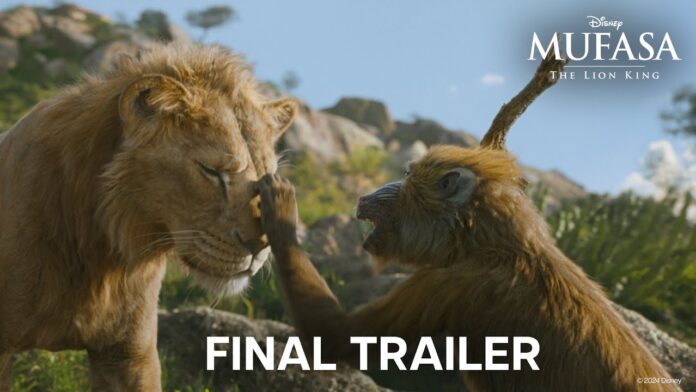Barry Jenkins directorial touch is nearly lost in Mufasa: The Lion King, a film bogged down by predictable storytelling and uninspired animation
Mufasa: The Lion King should have been an opportunity for Oscar-winner Barry Jenkins to inject some of his unique directorial magic into the Disney franchise. However, what we are left with is a dreary, uninspired prequel that struggles to find any real spark of originality, leaving Jenkins’ once-celebrated vision buried under the weight of a corporate machine. The film, a follow-up to the 2019 Lion King remake, takes a deep dive into the backstory of Scar, the iconic villain, and his strained relationship with Mufasa. But what should have been a poignant exploration of familial conflict feels like a hollow attempt to cash in on nostalgia.
One of the most striking things about Mufasa is how little it feels like a Barry Jenkins film. While there are occasional glimpses of his talent – such as a tight close-up on a character’s face, capturing the raw emotion of their animalhood, or a camera weaving through dry grasses to simulate the movement of a lion cub – these moments are fleeting and ultimately overshadowed by the film’s lacklustre storytelling. Jenkins’ directorial brilliance is barely visible amid the lifeless animation and the overly familiar narrative, which follows Mufasa’s rise to power and the complex rivalry with his brother, Taka (Kelvin Harrison Jr.).
The film attempts to answer the burning question: What made Scar turn so bitter and jealous? The answer, it seems, lies in a tragic backstory. Once known as Taka, he and Mufasa were close as brothers before circumstances – and Mufasa’s growing leadership – tore them apart. Taka’s rivalry with Mufasa is rooted in a fractured bond, complicated further when Mufasa’s natural leadership threatens Taka’s claim to the throne. The story is laced with melodrama, but ultimately, it feels far too simplistic and contrived to hold any real emotional weight.
Mufasa, voiced by Aaron Pierre, is a noble and reluctant leader, while Taka is played by Kelvin Harrison Jr. with a quiet intensity that doesn’t quite land. The performances are solid, but they are ultimately overshadowed by the film’s heavy reliance on predictable storytelling and lack of depth. While the film attempts to add layers to Scar’s character, the result is more melodrama than complexity. The villainous Kiros (Mads Mikkelsen), another character introduced to further complicate the plot, is an uninspired addition to an already crowded narrative.
One of the most disappointing aspects of Mufasa: The Lion King is the animation. While the 2019 remake received criticism for its photorealistic style, this prequel opts for a slightly more expressive approach. However, the result is still unsettling and unnatural. The lions’ faces are plastered with awkward, melted grins, rendering them almost inhuman and taking away from the emotional depth that the story desperately tries to convey. This stylistic choice, rather than enhancing the characters, ends up being a distraction from the story’s core message.
Ultimately, Mufasa: The Lion King is a missed opportunity. Disney’s attempt to mine more stories from the Lion King universe fails to deliver anything of substance. What could have been an exploration of the complexities of family, power, and betrayal ends up being a predictable and lacklustre prequel that offers little more than another cash grab in an already oversaturated franchise. Despite the talents of Barry Jenkins, Mufasa falls short of its potential, making it one of the most disappointing releases of the year.
